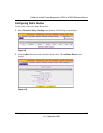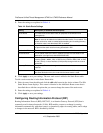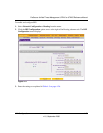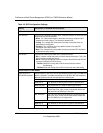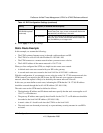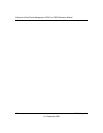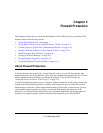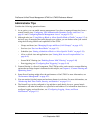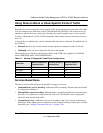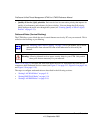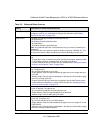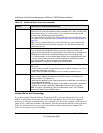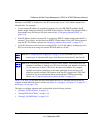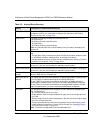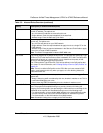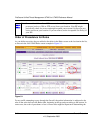
ProSecure Unified Threat Management UTM10 or UTM25 Reference Manual
Firewall Protection 5-3
v1.0, September 2009
Using Rules to Block or Allow Specific Kinds of Traffic
Firewall rules are used to block or allow specific traffic passing through from one side to the other.
You can configure up to 800 rules on the UTM. Inbound rules (WAN to LAN) restrict access by
outsiders to private resources, selectively allowing only specific outside users to access specific
resources. Outbound rules (LAN to WAN) determine what outside resources local users can have
access to.
A firewall has two default rules, one for inbound traffic and one for outbound. The default rules of
the UTM are:
• Inbound: Block all access from outside except responses to requests from the LAN side.
• Outbound: Allow all access from the LAN side to the outside.
The firewall rules for blocking and allowing traffic on the UTM can be applied to LAN/WAN
traffic, DMZ/WAN traffic, and LAN/DMZ traffic.
Services-Based Rules
The rules to block traffic are based on the traffic’s category of service:
• Outbound Rules (service blocking). Outbound traffic is normally allowed unless the firewall
is configured to disallow it.
• Inbound Rules (port forwarding). Inbound traffic is normally blocked by the firewall unless
the traffic is in response to a request from the LAN side. The firewall can be configured to
allow this otherwise blocked traffic.
• Customized Services. Additional services can be added to the list of services in the factory
default list. These added services can then have rules defined for them to either allow or block
that traffic (see “Adding Customized Services” on page 5-30).
Table 5-1. Number of Supported Firewall Rule Configurations
Traffic Rule
Maximum Number of
Outbound Rules
Maximum Number of
Inbound Rules
Maximum Number of
Supported Rules
LAN WAN 300 300 600
DMZ WAN5050100
LAN DMZ 50 50 100
Total Rules 400 400 800



